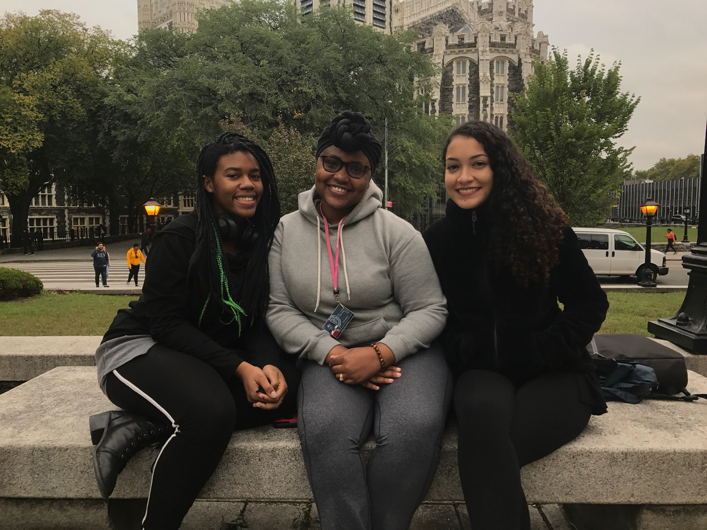You Are Not Alone: Domestic Violence Awareness Month
By: Jaquelin BautistaPhoto by: Jaquelin Bautista The "Day of Unity" in October of 1981 advocated for an end to violence against women and their children. What was once a single day, became an entire week dedicated for activities to bring awareness to domestic violence. The themes of these events consisted of mourning those who lost their lives to domestic violence, celebrating those who have survived, and connecting victims with proper resources to heal. These three themes continue to remain the focus of Domestic Violence Awareness Month, which initiated in October of 1987. It is common for us to hear about the physical harm that victims of domestic abuse endure. In fact, 1 in 4 women and 1 in 7 men have been victims of severe physical violence by an intimate partner. Additionally, Intimate partner violence accounts for 15% of all violent crime. However, many individuals face a more subtle form of violence: Psychological abuse (PA).Physiological abuse is a form of manipulation through verbal aggression, statements intended to humiliate or subordinate, insults, and threats of abandonment or control. As a result, a victim of PA can experience stress, social withdrawal, long-term or recurring depression, and anxiety.Francheska S. Phillips a junior at CCNY, described psychological abuse as a "trap" in the sense that victims may experience a lack of self-esteem and feel compelled to stay in the relationship.PA is often difficult to identify due to its subtle characteristics, yet by:
It is common for us to hear about the physical harm that victims of domestic abuse endure. In fact, 1 in 4 women and 1 in 7 men have been victims of severe physical violence by an intimate partner. Additionally, Intimate partner violence accounts for 15% of all violent crime. However, many individuals face a more subtle form of violence: Psychological abuse (PA).Physiological abuse is a form of manipulation through verbal aggression, statements intended to humiliate or subordinate, insults, and threats of abandonment or control. As a result, a victim of PA can experience stress, social withdrawal, long-term or recurring depression, and anxiety.Francheska S. Phillips a junior at CCNY, described psychological abuse as a "trap" in the sense that victims may experience a lack of self-esteem and feel compelled to stay in the relationship.PA is often difficult to identify due to its subtle characteristics, yet by:
- Controlling what the victim can or cannot do
- Doing something to make the victim feel diminished or embarrassed
- Isolating the victim from friends and family
- Denying the victim access to money or other basic resources
- Belittling the victim in public or in private
- Undermining the victim’s confidence or sense of self-worth
- Convincing the victim that they are crazy
abusers make it so victims believe that they're not worthy of anything or anyone else. Patricia Binagi, a senior, describes PA as a way to cut off opportunities for victims to escape their abuse through manipulative actions. Tira Powell, a junior, shared another identifying factor of psychological abuse. To have a healthy relationship one needs to be able to communicate effectively. If one feels that they cannot express their feelings properly with their partners and"If their partner reacts in a negative way or tries to convince them that their feelings are wrong, one could be experiencing psychological abuse." Unfortunately domestic violence, in any of its forms, goes widely unreported by victims. In correlation with the verbal and emotional abuse, PA can cause victims to not report their abuse in fear of not being believed. As Binagi noted, PA promotes the ideology that women are untrustworthy, whether it be an economic dependency, the fear of retaliation, or the fear of not being believed there are many reasons for victims to stay with their abusers.As bystanders to the abuse, Francheska Phillips and Enesco Hunt stated they would offer support to the victims, assuring them that their experience is not normal and should seek help. To identify if a friend or loved one is experiencing abuse, look for some of the following signs:They are constantly worried about making their partner angryor They make excuses for their partner’s behaviororThey’ve stopped spending time with friends and familyWhen asked how they would confront the abuser, Phillips mentioned she would indicate how the abuser would not like to be in the victim's place. Enesco Hunt, a junior, noted that he would denounce the abuser and their behavior.Regardless of what action one takes, the most important thing society can do is remain supportive of victims throughout their experiences. Sometimes, victims are unaware that there is support for them. A notion often experienced by communities of immigrants as noted by Austin Volkens, a junior. Due to their immigrant status, abusers have more ways to exert power and control over victims.Domestic Violence is an epidemic that affects 12 million women and men each year. On average, 24 people per minute are victims of rape, physical violence or stalking by an intimate partner. If you or a loved one is experiencing violence or abuse from an intimate partner, please speak up- you are not alone.For help call The National Domestic Violence Hotline at1-800-799-7233.





